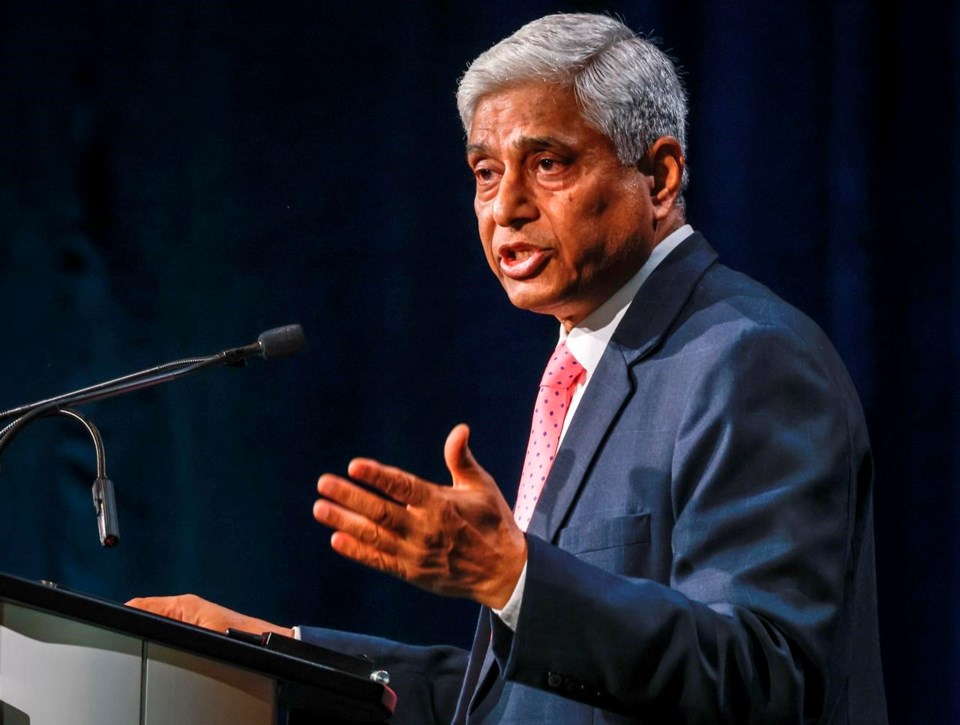BANFF, Alta. — A former high commissioner of India in Canada is criticizing the way Ottawa disclosed allegations the Indian government was involved in the killing of a Canadian citizen.
Vikas Swarup, who also served with India's Ministry of External Affairs and wrote the book upon which the film "Slumdog Millionaire" was based, was initially reluctant to discuss the state of Canada-India relations while speaking at the Global Business Forum in Banff, Alta., on Friday.
"I would say Canada, please take a step back, reflect carefully. There was no need for you to go public with this," Swarup said.
"This could easily have been solved at the diplomatic level between the two governments. But a bomb has been exploded. We have to pick up the pieces and move on."
On Monday, Prime Minister Justin Trudeau accused India of being involved in the killing of a man wanted by authorities in that country. Hardeep Singh Nijjar, a Sikh activist and Canadian citizen, was gunned down in June outside a Sikh temple in suburban Vancouver.
The situation escalated in the following days, with both countries expelling one another's representatives. India has also temporarily halted all visa services for Canadian citizens.
Swarup said Canada needs to continue diversifying its markets, and there isn't a better partner in Asia than India.
"We are federal democracies. We respect the rule of law, so that's why I completely reject the allegations that have been made here. Let the truth come out in a public inquiry. I have no problems with that."
Nijjar was working to organize an unofficial referendum among the Sikh community on independence from India at the time of his killing. He had denied India's accusation that he was a terrorist.
Demands for an independent Sikh homeland, known as Khalistan, started as an insurgency in India's Punjab state in the 1970s that was crushed in an Indian government crackdown that killed thousands.
"Since the time I was high commissioner here, much before that we had been giving dossiers after dossiers to Canada on the increasing activity for what we call pro-Khalistani elements, PKE, in Canada," Swarup told the audience.
"I have no problem with the existence of a Khalistani movement in Canada. My problem is when that movement turns toward incitement, violence, hatred."
Victor Thomas, president and CEO of Canada-India Business Council, said a few weeks ago he was in India at the B20, a business conference held ahead of the G20 meeting of global leaders. He said an early-progress trade agreement was being negotiated, then everything changed.
"I was back in India. At 1:03 a.m. Monday, all of a sudden I get a few messages that start coming on my phone. Then I got a lot of messages coming on my phone. I was up all night," Thomas said.
"Of course our prime minister had some comments to make and since then if you just rewind, our trade agreement … was pulled back and Canada opted out."
Thomas said the economic impact of a rift is undeniable.
"Why does this matter? It matters because India for the first time ever hosted the G20. India also was the heart of our Indo-Pacific strategy that we released at the end of last year," he said.
"A lot has changed this week."
This report by The Canadian Press was first published Sept. 22, 2023.
Bill Graveland, The Canadian Press



